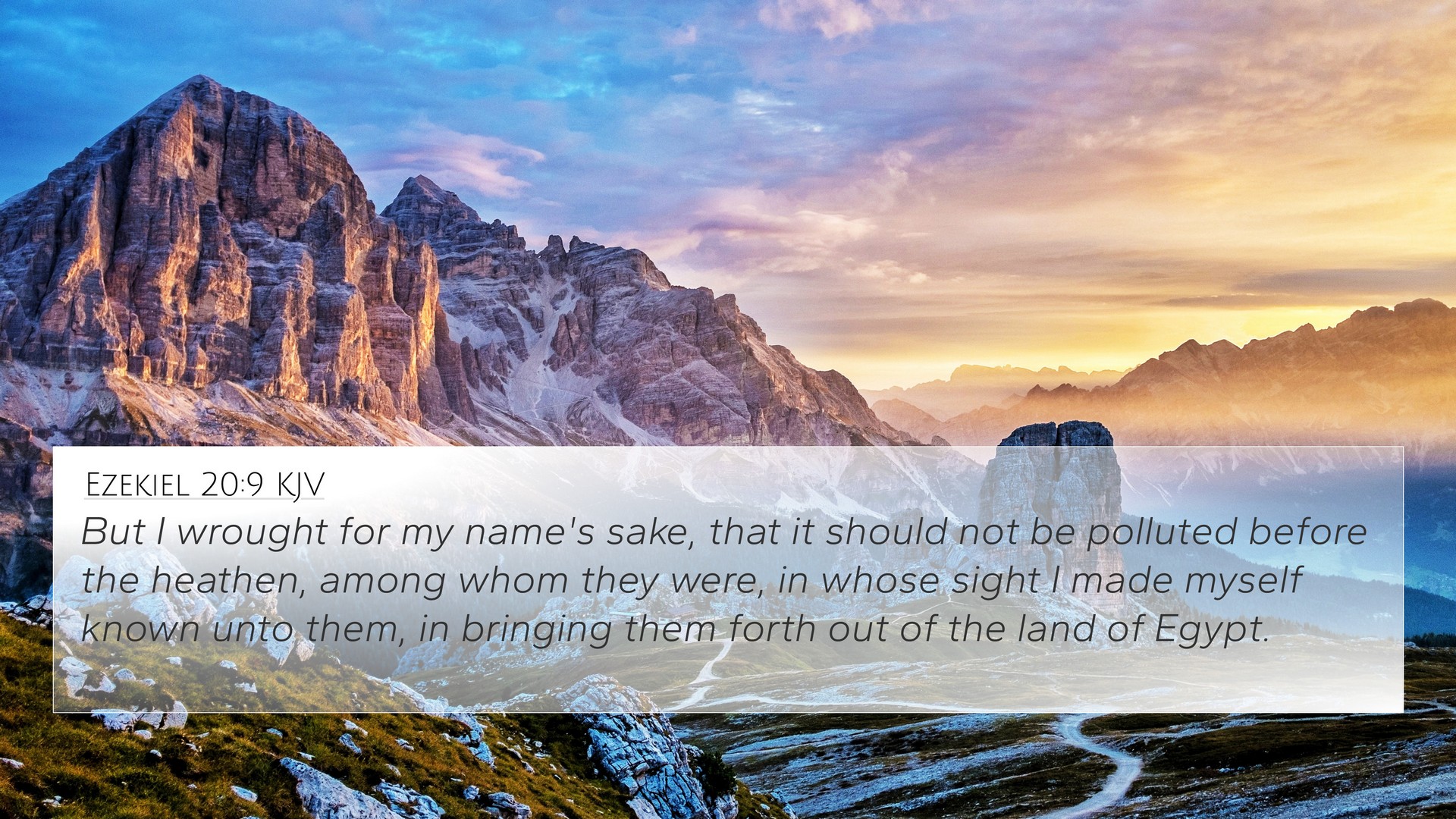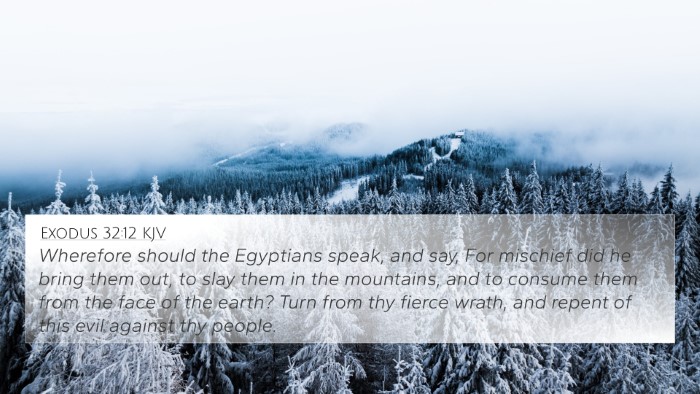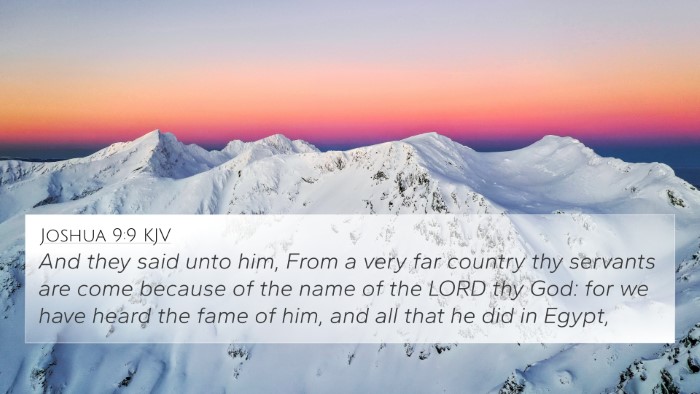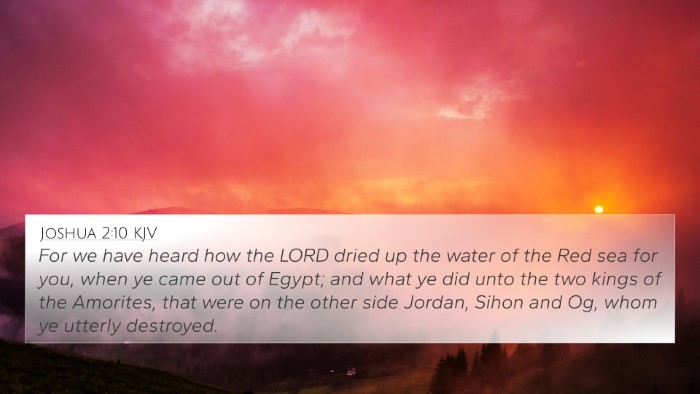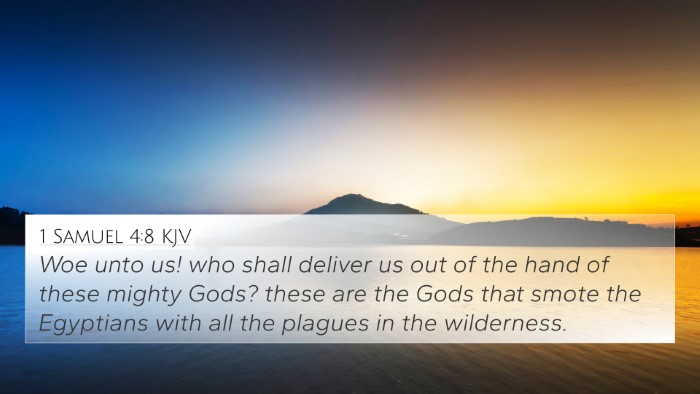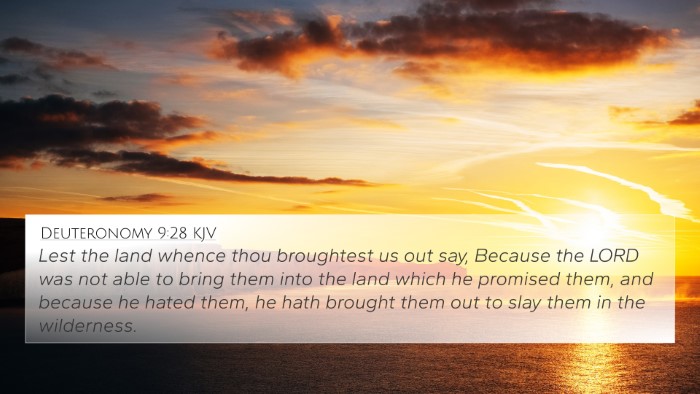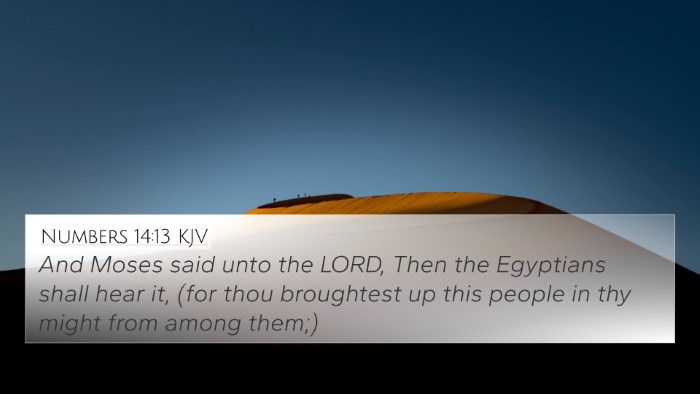Ezekiel 20:9 - Summary and Interpretation
The verse Ezekiel 20:9 states: "But I wrought for my name's sake, that it should not be polluted before the heathen, among whom they were." This verse represents a profound reflection on God's actions concerning His people and His name's integrity.
Meaning and Insights
This verse conveys God's commitment to His name and reputation, highlighting several key themes:
- Divine Advocacy: God's actions are rooted in His desire to protect His name from being tarnished among the surrounding nations. This emphasizes the importance of God's name in relation to His character and actions.
- Covenantal Relationship: The relationship between God and Israel is depicted as a covenant, where God's decisions are influenced by the promises made despite Israel's rebellion.
- God's Sovereignty: This verse illustrates God's sovereignty over circumstances, ensuring His will is fulfilled even amidst human failure and disobedience.
Connections and Cross-References
In studying Ezekiel 20:9, it's valuable to consider its connections with other scripture. Below are key cross-references that reveal thematic links:
- Exodus 32:12: "Wherefore should the Egyptians speak, and say, For mischief did he bring them out, to slay them in the mountains?" - This verse also deals with God's concern for His name among the nations.
- Isaiah 48:9-11: "For my name's sake will I defer mine anger, and for my praise will I refrain for thee, that I cut thee not off." - Illustrates God's commitment to His name and mercy toward His people.
- Jeremiah 14:7: "O Lord, though our iniquities testify against us, do thou it for thy name's sake: for our backslidings are many; we have sinned against thee." - Echoes the sentiment of pleading for God’s mercy based on His name.
- Psalms 23:3: "He restoreth my soul: he leadeth me in the paths of righteousness for his name's sake." - Shows how God's guidance and restoration are for the sake of His name.
- Psalms 106:8: "Nevertheless he saved them for his name's sake, that he might make his mighty power to be known." - Relates to God's redemptive actions being linked to the glory of His name.
- Ezekiel 36:22-23: "Therefore say unto the house of Israel, Thus saith the Lord GOD; I do not this for your sakes, O house of Israel, but for mine holy name's sake." - A direct affirmation of God's motives as stated in Ezekiel 20:9.
- Romans 2:24: "For the name of God is blasphemed among the Gentiles through you, as it is written." - Highlights how God’s name can be affected by the actions of His people, similar to what Ezekiel warns against.
Thematic Connections
This verse serves as a bridge to broader Biblical themes:
- The Glory of God: A recurring theme where God's reputation is directly related to His glory among the nations.
- God's Faithfulness: The idea that despite human disobedience, God remains faithful to His promises and His own nature.
- Redemption and Restoration: God's interventions in history often take place to uphold His name as a testament to His redemptive purposes.
Conclusion
In summary, Ezekiel 20:9 encapsulates the critical nature of God's name and how it encompasses His actions toward His people. Through a careful comparative Bible verse analysis of related scriptures, a cohesive understanding arises, highlighting the significance of God's name throughout Scripture. This verse not only serves as a reminder but also provides tools for effective Bible cross-referencing, allowing deeper engagement with the text and its implications for understanding God's character.
